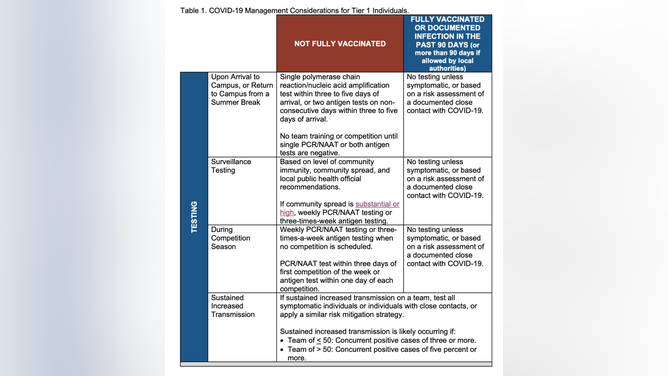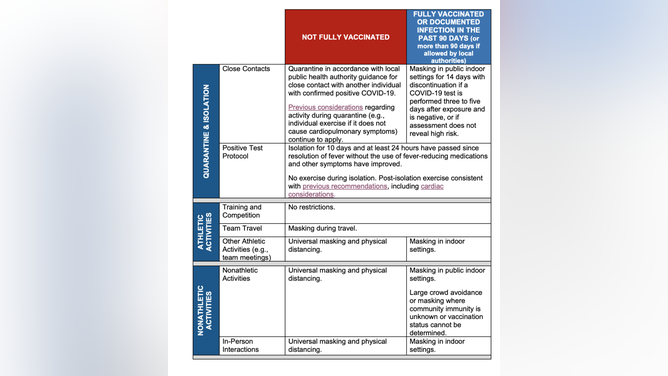NCAA Issues Fall COVID Guidance: Restrictions Drop For Vaccinated
The NCAA released its 2021 Fall Training and Competition guidance on Wednesday, and it issues vastly different guidelines for vaccinated and unvaccinated individuals.
The NCAA offers testing, quarantine, isolation, and other athletic and nonathletic activity recommendations for unvaccinated and fully vaccinated Tier 1 individuals — individuals who have the highest exposure like student-athletes, coaches, athletic trainers, physical therapists, medical staff, equipment staff and officials.
"Current vaccination rates remain inadequate to provide community-level immunity," NCAA Chief Medical Officer Brian Hainline said. "It is essential that member schools work in concert with federal, state and local public health officials to develop COVID-19 prevention and management strategies that make sense for them."
The NCAA is recommending those who are fully vaccinated or who have a documented infection within a 90-day period not to test in-season unless they are symptomatic, while it recommends testing unvaccinated athletes three times per week. Vaccinated athletes also don't have to quarantine after a close contact interaction with a positive COVID-19 case, according to the NCAA guidelines.

Screenshot of the new NCAA guidance.
No restrictions are given for training and competition for the fall season, and masks are recommended for both vaccinated and unvaccinated during team travel. Unvaccinated individuals are recommended to mask at all times and physically distance during other team activities, while vaccinated individuals are recommended to mask in indoor settings only.
Testing is recommended for teams with 50 or more members and a 5% positivity rate or higher.

Screenshot of the new NCAA guidance.
The NCAA said in a news release that emergent evidence on the highly transmissible delta variant of COVID-19 suggests fully vaccinated individuals can become infected by the delta variant and transmit the virus to others even when asymptomatic, and individuals who are fully vaccinated have considerable protection from hospitalization and death from COVID-19.
The NCAA guidance was developed in consultation with the NCAA Medical Advisory Group, American Medical Society for Sports Medicine Working Group and Autonomy 5 Medical Advisory Group, the release states. The NCAA said the guidance remains subject to revision as available data continues to emerge and evolve.
Follow Meg Turner on Twitter @Megnturner_ and Instagram @Megnturner.